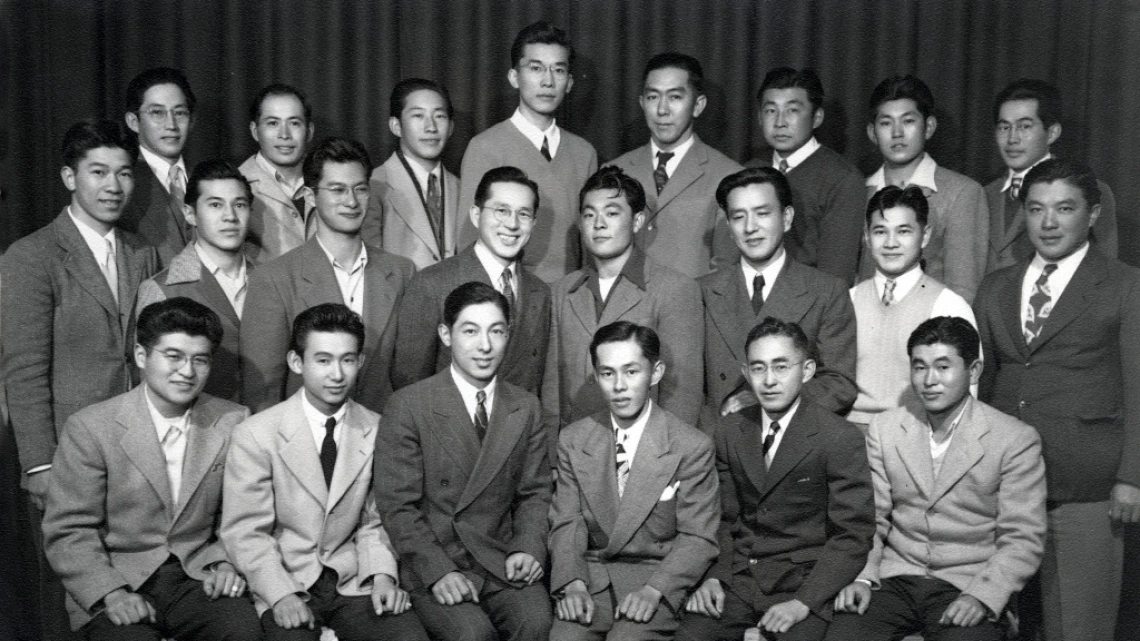Japanese Americans share their stories after Pearl Harbor

First anniversary gathering of the Tucsonians, Sacramento, California, 1947. Tucsonian is the self-given name the group of American men of Japanese ancestry adopted while imprisoned in the Catalina Federal Prison on Mount Lemmon during the 1940s for resisting the draft. The Tucsonians and all wartime draft resisters were pardoned in 1947.
When
Where
On December 7, 1941, Japan bombed Pearl Harbor, and soon afterward, President Franklin D. Roosevelt ordered the mass removal of 110,000 people of Japanese ancestry from the West Coast to incarceration camps located further within the United States interior.
During this time, 1941 to 1943, Americans of Japanese ancestry were prohibited from serving in the US military. However, in 1944 the government re-instituted the draft for all Nisei, first generation Japanese born in America, including those in camps.
Listen to our collection of oral histories from several of the Japanese American resisters of conscience who served sentences at the Catalina Federal Prison (renamed the Gordon Hirabayashi Recreation Site in 1999) during WWII. The Tucsonians Oral History Project Collection also includes photos, audiotapes, and transcripts of interviews.
"Tucsonian" is the self-given name the group of American men of Japanese ancestry adopted while imprisoned in the Catalina Federal Prison on Mount Lemmon during the 1940s for resisting the draft. The Tucsonians and all wartime draft resisters were pardoned in 1947.
Related collections
The Tucsonians Oral History Project Collection
